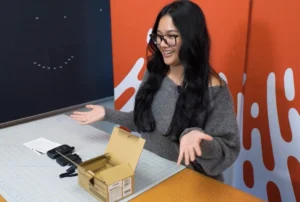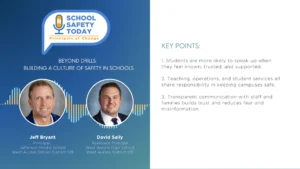MarketScale Education Technology Study
Technology influences American secondary education as it never has before.
The campus and the classroom are more connected than ever. Sophisticated audio-visual technologies allow administrations to rapidly broadcast information, and faculties to stimulate informed debate and collaboration in their student bodies. Advances in construction drive the development of new educational, residential, and recreational facilities.
Despite this incredible state of affairs, technology is underutilized and underleveraged.
MarketScale identified these dichotomies in its proprietary study of education technology. Our findings are drawn from a survey of administrators and directors of technology at American colleges and universities.
Campus Experience and Education:
- 64% of administrators say that in the next five years, at least 3 out of 10 students will take their college classes 100% online.
- 27% of administrators say their administration will offer a fully comprehensive online curriculum in the next five years.
- 40% of administrators say students utilize the campus library less than they used to.
- 46% of administrators say sporting events are an important factor for driving interested in their institution.
Software & Technology:
- Only 57% of administrators say they are happy with the level of student interaction with technology.
- 70% of administrators say when given technology on campus, training is either good or excellent.
- 26% of college campuses have installed upgraded Wi-Fi systems in 2017 or 2018.
- Only 19% of administrators rate their Wi-Fi on campus to be excellent.
- Only 4% of administrators consider their Wi-Fi connection on campus to be very slow.
- 78% of administrators feel their on-campus network security is adequate.
- 32% of college campuses do not offer printing from mobile devices.
Audio-Visual:
- Digital signage is the display technology university administrators are most interested in
- College administrations are 6% more likely to purchase LED than LCD.
- Initial costs prevent 46% of colleges from implementing in audio-visual technologies.
- 36% of administrators say the initial costs and upkeep of audio-visual technologies prevents their purchase.
- Only 4% of administrators cite lack of demand as preventing their purchase of audio-visual technologies.
- 25% of administrators say inaction at the administrative level prevents audio-visual technology purchases.
- 47% of university campuses have a videowall.
- 51% of videowalls on college campuses are in facilities housing student unions.
- Only 28% of videowalls on college campuses are in learning facilities.
- 11% of videowalls on college campuses are in residential facilities.
- 23% of videowalls on college campuses are in recreational facilities on campus.
- 22% of college campuses have outdoor digital display kiosks.
- 16% of administrators say audio-visual technology has not made a major impact to their common areas.
- Only 14% of college administrators say audio-visual technology has made a high impact on the design of common areas.
- 28% of digital displays on campus are subsidized, at least in part, by paid advertising programs.
- 77% of administrators cite email as the most common channel for critical campus messaging.
- Automated phone systems are the second most common alert system on college campuses.
- 55% of administrators say digital audio-visual technology is used for campus alerts.
- 58% of administrators say digital audio-visual technology improves campus safety.
- 27% of administrators say their on-campus audio-visual technology makes little impact to on-campus safety.
- 98% of college classrooms have projectors.
- 25% of administrators say all classrooms on campus have a projector.
- 21% of colleges have a sponsored broadcast channel.
- 18% of administrators say their classrooms currently have touchscreen (smart) display technology.
- 30% of administrators say they are interested in adding more touchscreen display technology on campus.
- 14% of administrators are not interested in adding more touchscreen display technology on campus.
- 31% of administrators say they are interested in adding a video scoreboard in one or more campus athletic facilities.
- 46% of college campuses have digital menus or menuboards in campus dining facilities.
Construction:
- The top three areas of focus for designing learning facilities on campus are classrooms, libraries, and student unions.
- 57% of administrators say they will renovate or construct new educational facilities in the next 12-24 months.
- 34% of administrators say they will renovate or construct new residential facilities in the next 12-24 months.
- 23% of administrators say they will renovate or construct new student unions in the next 12-24 months.
- 22% of administrators say pre-fabrication has made on-campus construction faster.
- 27% of administrators say pre-fabrication has made on-campus construction faster.
- 27% of administrators say pre-fabrication has made on-campus construction more cost-effective.
- 82% of administrators say their classrooms have traditional whiteboards.
- 7% of administrators say their classrooms have glass writeable surfaces.
- 35% of college campuses are implementing, or have implemented, temporary classroom facilities.
- 16% of administrators say they will renovate or construct new sports facilities in the next 12-24 months.
- 29% of administrators say they have at least one sports field with synthetic turf.
[button color=”” size=”” type=”square_outlined” target=”” link=”https://marketscale.com/wp-content/uploads/2018/10/MarketScale-Education-Technology-Survey-compressed.pdf”]DOWNLOAD THE STUDY[/button]









